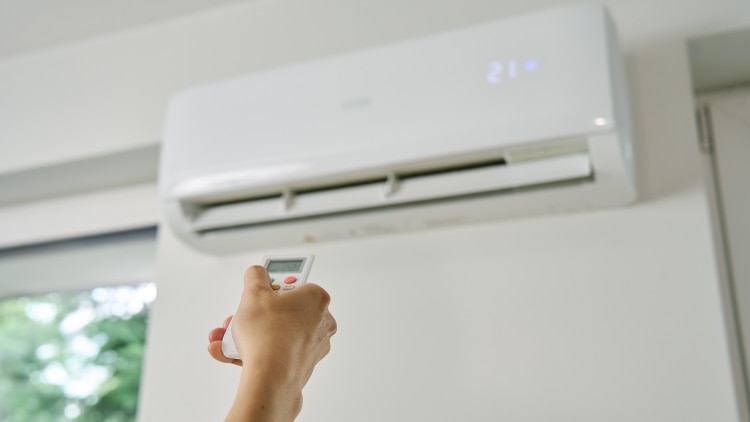

Air Conditioner Not Cooling? 6 Common Causes and How to Fix Them
During the scorching summer months, an air conditioner is an essential appliance for both homes and offices. Whether relaxing at home or trying to concentrate at work, a cool indoor environment is vital. However, sometimes an AC suddenly stops cooling efficiently after operating for a while, causing great discomfort. What are the reasons behind this drop in cooling performance, and how should you respond? This article breaks down the possible causes and provides practical solutions.
Common Reasons Why Your Air Conditioner Isn't Cooling
1. Clogged Air Filter
If the air filter hasn't been cleaned for a long time, dust can accumulate, blocking airflow. Even if the compressor is working properly, the cool air won’t circulate effectively, reducing the overall cooling performance.
2. Low Refrigerant Level (Commonly Known as "Freon")
The AC relies on refrigerant for heat exchange. If there’s a leak in the piping or the system is old, the refrigerant level may drop, severely affecting the cooling capacity.
3. Dirty Evaporator or Condenser Coils
The evaporator absorbs indoor heat, while the condenser releases it outside. If these components are covered with dust or grease, heat exchange efficiency drops, and although the unit seems to be running normally, the room won’t feel cool.
4. Fan Malfunction
The fan helps blow out the cooled air. If the fan is spinning slowly or not at all, it affects the airflow and reduces the cooling effect.
5. Faulty Temperature Sensor
The temperature sensor detects room temperature to regulate cooling. If it malfunctions, it may misjudge the temperature, causing the AC to stop cooling prematurely and preventing it from reaching the set temperature.
6. Power or Control Circuit Issues
Unstable power supply or a faulty mainboard can prevent the compressor from turning on or cause irregular operation, affecting overall cooling performance.
Effective Solutions to Improve AC Cooling
1. Clean the Air Filter Regularly
It’s recommended to clean the filter every two weeks to prevent dust buildup, ensure smooth airflow, and improve cooling efficiency.
2. Check and Refill Refrigerant
If you suspect low refrigerant, have a certified technician inspect and refill it. Do not attempt to add refrigerant yourself, as it can be dangerous and damage the unit.
3. Clean the Evaporator and Condenser Coils
An annual deep cleaning by a professional technician is recommended to clean the evaporator, condenser, and air ducts, ensuring optimal performance.
4. Check the Fan Operation
If the fan is making strange noises, spinning slowly, or not spinning at all, check the motor or blades for damage and repair or replace as needed.
5. Replace the Temperature Sensor
If the sensor fails, a technician can replace it. The repair cost is usually low and can significantly improve cooling accuracy.
6. Repair Electrical System
If you experience problems like startup failure, flashing lights, or inconsistent cooling, it may be due to motherboard or control system faults. Contact a professional technician for inspection and repair.
Everyday Maintenance and Preventive Measures
1. Schedule Regular Professional Maintenance
It’s advisable to have a full inspection annually, including refrigerant pressure testing, internal cleaning, fan speed testing, and temperature sensor checks to prevent future issues.
2. Keep the Surrounding Area Clean
Avoid smoking, burning incense, or cooking near the air conditioner to reduce the amount of grease and dust entering the unit, extending its lifespan.
3. Use AC Wisely
Set your AC temperature between 25°C to 27°C. Avoid prolonged use at low temperatures to save energy and reduce wear on components.
Insufficient cooling is a common but preventable issue. Causes include clogged filters, low refrigerant, fan or sensor malfunctions, etc. Regular cleaning and maintenance, along with proper usage, can extend your AC’s lifespan and ensure a consistently cool environment during hot weather. If you encounter issues that can't be fixed on your own, seek professional help promptly to avoid worsening the problem. If you're considering replacing or buying a new air conditioner, check out our Aircon Shopping Guide & Recommendation for high-efficiency, cost-effective models on the market.

